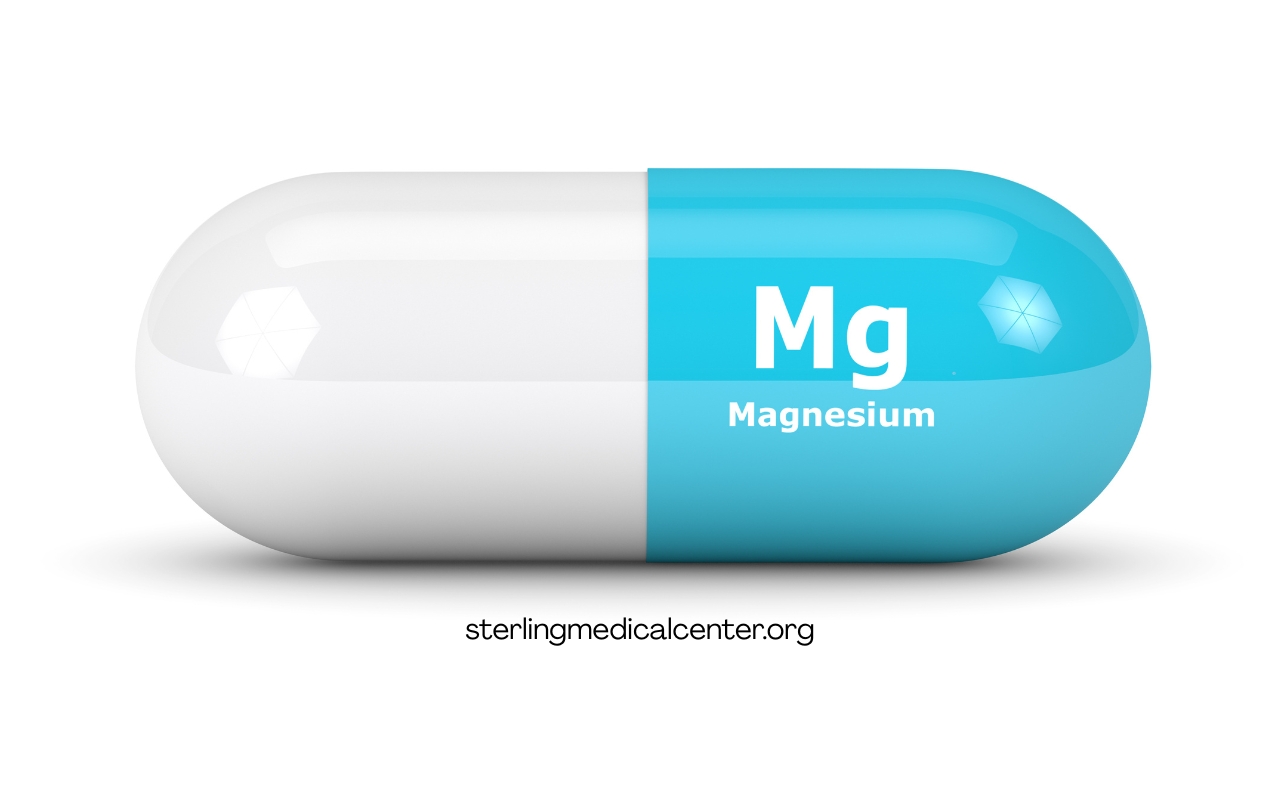
Magnesium, an essential mineral, has moved beyond niche wellness conversations to become a key focus in preventive healthcare. Like protein, vitamin D, and creatine, magnesium plays a fundamental role in numerous physiological processes. Yet, despite its significance, it remains one of the most misunderstood and under-discussed nutrients.
At SterlingMedicalCenter.org, our wellness team is committed to providing evidence-based, informative content on natural wellness approaches that complement conventional healthcare. In this article, we explore magnesium’s vital functions, common misconceptions, and science-backed considerations for supplementation.
The Critical Role of Magnesium in the Human Body
Magnesium is an essential cofactor in over 300 enzymatic reactions that regulate critical bodily functions. It influences the nervous, endocrine, cardiovascular, and musculoskeletal systems. According to clinical research, magnesium supports:
- Neuromuscular function: Essential for nerve transmission, muscle contraction, and relaxation.
- Metabolic health: Plays a role in regulating blood sugar and insulin sensitivity.
- Cardiovascular function: Helps maintain normal blood pressure and supports heart rhythm stability.
- Bone health: Involved in bone mineralization and calcium metabolism.
- DNA synthesis and repair: Contributes to cellular replication and protection against oxidative stress.
Are People Actually Deficient in Magnesium?
Despite its importance, magnesium deficiency is not as prevalent as often claimed. Many dietary sources naturally contain magnesium, and the body maintains homeostasis through absorption and storage mechanisms.
Dr. Laura Purdy, MD, CEO of Swell Medical, notes that “Magnesium is found in a variety of food sources, including whole grains, leafy greens, legumes, nuts, and fish. Given its availability, true deficiency is relatively uncommon among those with a balanced diet.”
Moreover, magnesium is stored in bones and soft tissues, meaning short-term fluctuations in dietary intake do not immediately result in deficiency. However, certain populations may be at risk, including:
- Individuals with gastrointestinal disorders that affect absorption.
- People with chronic kidney disease.
- Those taking diuretics or proton pump inhibitors (PPIs) long term.
- High-performance athletes with significant magnesium losses through sweat.
Should You Supplement with Magnesium?
Magnesium supplementation has been increasingly marketed for benefits related to sleep, mood, and muscle function. While magnesium does play a role in these areas, over-supplementation is not inherently beneficial and may lead to adverse effects.
According to the National Institutes of Health (NIH), the recommended daily intake of magnesium for healthy adult males is 400-420 mg and for females is 310-320 mg. Over-supplementing can cause gastrointestinal distress and, in extreme cases, toxicity leading to low blood pressure and irregular heart rhythms.
“With magnesium, more is not necessarily better,” warns Dr. Purdy. “Taking excessive amounts can disrupt the body’s delicate mineral balance. It is best to adhere to recommended guidelines unless directed otherwise by a healthcare professional.”
If supplementation is necessary, it should be based on clinical evaluation, including serum and red blood cell magnesium analysis, rather than self-diagnosing based on general fatigue or muscle cramps.
Magnesium Depletion in Active Individuals
“We lose magnesium via sweat and stress,” explains Brittany Michels, MS, RDN, LDN, CPT, a registered dietitian at The Vitamin Shoppe. “Athletes, particularly those with high sweat rates, may require additional magnesium to compensate for losses.”
Endurance athletes and individuals engaging in prolonged physical activity may benefit from targeted supplementation, but it is crucial to rule out hydration or electrolyte imbalances first, as symptoms of dehydration and magnesium depletion often overlap.
Understanding Different Forms of Magnesium
Unlike other nutrients, magnesium is not a single compound; it exists in multiple forms, each with distinct absorption rates and functions.
- Magnesium Glycinate: Well absorbed and commonly used for muscle relaxation and sleep support.
- Magnesium Citrate: Known for its laxative effect and often recommended for constipation relief.
- Magnesium L-Threonate: Demonstrated to cross the blood-brain barrier and support cognitive function.
- Magnesium Oxide: Contains a high magnesium concentration but is poorly absorbed.
“Choosing the right form of magnesium depends on the individual’s health goals,” says J. Rand Baggesen, MD, founder and medical director at Executive Health Group. “For instance, someone experiencing muscle cramps may benefit from magnesium glycinate, while another seeking cognitive benefits may look to magnesium L-threonate.”
Final Considerations: Should You Take a Magnesium Supplement?
While magnesium plays a fundamental role in preventive health, supplementation should not be approached casually.
- Most people meet their needs through diet. A diverse intake of whole foods naturally provides adequate magnesium.
- Supplementation should be need-based. Clinical testing should guide decisions on magnesium intake rather than speculation.
- Excess magnesium can have negative effects. Overuse can lead to gastrointestinal distress, electrolyte imbalances, and cardiovascular complications.
Conclusion: Magnesium as a Cornerstone of Modern Health
Magnesium is undeniably crucial for optimal health, impacting everything from metabolic function to cardiovascular stability. However, the modern discussion around magnesium supplementation requires nuance. The best approach is evidence-based: understanding dietary intake, recognizing individual needs, and consulting healthcare professionals before considering supplementation.
At SterlingMedicalCenter.org, we remain committed to providing research-backed insights on natural wellness strategies. Magnesium is a vital component of preventive health, but its use must be guided by science rather than marketing trends. For those considering supplementation, professional medical consultation remains the gold standard for optimizing health outcomes.